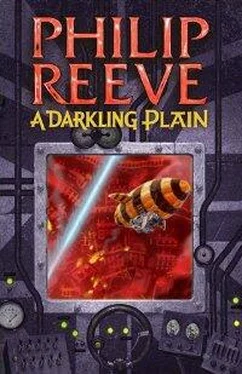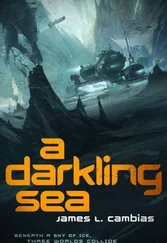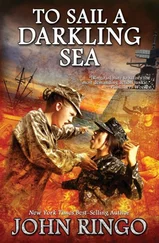“Very touching,” yawned Wolf, who had heard that story many times before. “But the Mossies must still be exterminated.”
“Nonsense!” said his father crossly. “The Traktionstadtsgesellchaft was not founded to exterminate anyone, only to defend honest cities from the Storm. Let Naga and his Anti-Tractionists live up in their horrible mountains in peace, as long as they promise not to trouble us.”
Wolf rounded on his father angrily but did not say anything. Instead he walked to the edge of the gazebo and looked out between the dead trees, east across the rough, torn landscape that the war had made to the plains beyond, imagining London out there somewhere, waiting.
After a while, Kriegsmarschall von Kobold said, “Manchester is coming east. I had a communique from the mayor, Mr. Browne…”
“Ah! Our paymaster.”
“It is true that Manchester has helped to finance our struggle… He plans to hold a conference aboard his city as soon as it reaches the line. The mayors of all the Traktionstadts are to meet and decide how to proceed. I plan to make the case for a lasting peace with the Storm. I would like you to be there, Wolfram. There at my side, so that everyone can see you are my heir…”
“I shall be going home to Harrowbarrow tomorrow or the day after,” said his son. “I have business to attend to.”
“With your sky-tramp aviator friends?”
Wolf shrugged.
The kriegsmarschall turned away, hesitated, then shook his head and marched briskly down the steps and across the bridge. He had fought countless battles against the Storm, met Stalkers in hand-to-hand combat on the steps of his own home in the red winter of ’14, but his own son always defeated him.
Wolf stood alone and watched him go. After a while he had the uncomfortable feeling that he was being watched too. He turned, and there was the statue of the goddess gazing at him with her calm, blind eyes. Despite what he had told his father, Wolf could remember how, as a little boy, he had liked to sit in the statue’s lap and look up at her while his father told him stories of Murnau’s glorious past. He drew his saber and hacked through the slender neck with three furious blows, sparks flaring as the blade sliced stone. Then he kicked the severed head down the stairs into the empty lake and strode quickly away through the gardens to start preparing for his journey.
Chapter 12
The Sand Ships
It seemed to Theo to be raining. He could not feel the rain, for he was indoors, in bed. He could not see the rain, for it was dark. But he could hear it, the gentle hiss of steady falling rain, and even the sound was refreshing after those parched days on Cutler’s Gulp. It rushed and sighed and soothed and shushed, and wove together his disjointed dreams.
And sometimes, briefly, he came fully awake, and knew that the hissing rain sound was just the noise of the sand singing beneath the wheels of the black sand ship.
“Don’t be afraid,” someone told him.
“Wren?” he asked.
“Was she with you when you were taken by Grandma Gravy’s boys? Were Wren and Tom with you?”
“No, no,” said Theo, shaking his head. “They’re far away.
They’re in the north, on the bird roads. Wren sent me a card at Christmas… I hoped I might find her when we reached the north…” Remembering the wreck of the Nzimu, he struggled to rise. “Lady Naga… What about Lady Naga?”
A hand touched his face, gentle and shy. A mouth brushed his forehead. “Don’t be afraid, Theo. Sleep.”
He slept, and woke again, and saw that the woman who sat beside him was Wren’s mother. Above her head an argon globe in a squeaky gimbal swung to and fro, sloshing black washes of shadow up the cabin walls. When the shadows hid Hester’s face, Theo could imagine that it was Wren sitting there beside his bunk, but when she saw that he was watching her, she said harshly, “Awake, are you? You’d better pull yourself together. There’s no room for slackers on my sand ship.” It was as if she hoped that he would not remember the gentle things she had said to him earlier.
Theo tried to speak, but his mouth was drier than Bitumen Bay. Hester reached out roughly and raised his head and pushed a tin cup against his lips. “Don’t drink too much,” she said. “I can’t spare it. I was only in Cutler’s Gulp for food and water, and thanks to you I had to leave before I found either. That lout I shot was Grandma Gravy’s golden boy. She’s not best pleased.”
The sand went on singing against the hull of the speeding ship. Theo slept again. Hester stood up and climbed the ladder to the open cockpit, where Grike stood at the tiller, his green eyes glowing. The ship was west of the sand sea, running across plains of roasted shale. Away in the east a band of pale light showed on the horizon. The wind thrummed in the rigging. “He keeps going on about someone called Lady Naga,” Hester said. “I think she must have been with him when the scavs found him. Ever heard of Lady Naga?”
Grike said, “there are ships behind us.”
“What? Damn!”
Hester had expected the old witch at Cutler’s Gulp to send someone after her. Grandma’s reputation for black magic meant that her men were likely to be more scared of Grandma than they were of Hester or her tame Stalker. She squinted at the horizon until she could see them too, the thin, sharp shapes of their sails, like the teeth of fish. She had expected one or two, feared three, but Grandma had sent six, ranging in size from a tiny cutter to a big, twin-hulled dune runner. “I suppose we ought to be flattered,” she said.
The sun rose out of the ragged hills astern, and the lookouts on the masts of the pursuing ships saw the black sail ahead. A flare rose from the dune runner, signaling “chase to leeward.” A few minutes later there was a puff of smoke aboard one of the smaller ships, and Grike and Hester saw a dune a few hundred yards astern explode in flames and flung sand.
“they will soon be in range,” Grike said impassively. “if they hit our tires while we are traveling at this speed, the vehicle will be destroyed.”
“Damn,” said Hester again. She went below to the gun locker and took out something she had stolen from a bandit she’d killed way out in the Djebel Haqir. It was an automatic jezail, taller than her, with pretty silver chasing on its walnut stock. If the bandit had been sober, he might still have been alive; it was a good gun, with a range of several miles. Hester loaded big brass shells into the chambers and filled her pockets with more. She checked that Theo was still sleeping. He was, curled up like a child, gentle and vulnerable. Hester made herself turn away. If she wasn’t careful, she would start to care about him, and she knew too well that when you cared about people, you opened yourself up to all kinds of pain.
She climbed out into the light, which was hard and white. The scouring wind was full of sand, and the ships were closer. The one that had fired first was smallest and fastest; it was coming up quickly on the starboard quarter, and Hester could see the men on its hull taking aim at her with some kind of swivel-mounted cannon. It puffed out white smoke, and she felt the shot whisk past her, exploding among a stack of biscuit-colored rocks a hundred yards to larboard.
She wiped her nose on her sleeve and steadied her gun against the cockpit rail. “Be easier if you could do this,” she told Grike, pushing her sand goggles up her forehead and squinting through the jezail’s telescopic top sight. “I can hardly see them…”
“i cannot,” said Grike. “I have told you many times. something dr. zero did to me; some barrier in my mind …”
“I wish I had your Dr. Zero here right now,” grunted Hester, trying to focus on the little knot of men busy with their sponges and ramrods around the swivel gun. “I’d put a barrier in her mind.” She squeezed the jezail’s trigger and cursed as the stock slammed against her shoulder. The empty cartridge casing went tumbling astern. Where the bullet had gone Hester could not say, but she had not hit her target. She was no sharpshooter. Her talent wasn’t shooting, only killing.
Читать дальше












